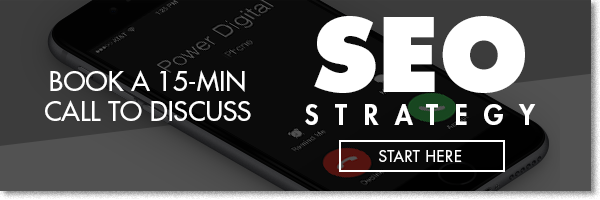WE HAVE SIMPLIFIED SEO, HERE IS HOW GOOGLE RANKS WEBSITES!
SEO’s have a bad habit of making SEO very complicated and hard for non-SEO’s to understand. In the 15 minute video above I tried to simplify SEO, the primary aspects of how SEO works, and what Google looks at when ranking websites. I focused my outline on “On-page” SEO and how Google reads the different pages of your website. I’ve also explained “Off-page” SEO and how external links pointing back to your site work and impact rankings. Hopefully this video will help you gain a better grasp on SEO and how google Organic Search works and can impact your website.
On-page SEO Basics:
- On-page SEO is just that, the various bits of information on each page of your website such as…
- this page: https://powerdigitalmarketing.com/
- this page: https://powerdigitalmarketing.com/careers/
- and this page: https://powerdigitalmarketing.com/category/seo/
- It’s important to understand that each page on your website gets crawled by Google (a robot reads it word for word) and evaluated individually. This means you need a clear strategy for each individual page, not only your website as a whole.
- One of the key elements to On-page SEO is the selection of the keywords that you want to target for each page. When selecting these keywords it’s important to make sure they are very relevant to the information that page focused on.
- Once you select your keywords it’s important to target them through some of the primary On-page SEO factors including your Title tag, Header tag and Website Content (examples shown in video).
- Generally speaking Google really values content or text (kind of like what you are reading right now). Pages that have more robust and built out content often rank best. I’ve done several case studies and the majority of pages ranking on page #1 of google have over 2,000 words of text on them.
- When targeting keywords it is important to understand the 3 primary “types of searches” that people make. Here is a quick look at those 3 types of queries and what the intent of the searcher is so you can better understand why they matter.
- Transactional Searches: These are super important to the SEO strategy and if you can rank for these you should be a pretty happy camper. These are people that are looking to buy your product or service and often times pretty ready to pull the trigger. An applicable example would be Dick’s Sporting Goods ranking for “Wilson baseball gloves for sale”. We usually target these types of searches on the website homepage, product pages and the pages that are linked on the main navigation of the website.
-
- Informational Searches: These are also keywords that you want to target in your SEO strategy but they are usually people that are earlier in the buying cycle and still doing their research. An example would be Dick’s Sporting Goods ranking for “Top baseball gloves for outfielders”. We usually target these types of searches in our blog content, resources pages, how to guides, etc. These keywords are generally not as competitive as the transactional keywords and a bit easier to rank highly for.
-
- Navigation Searches: these are people that already know what they are looking for and are just using the search engine out of convenience. An example would be someone searching for Dick’s Sporting Goods. We usually don’t worry too much about these types of search queries in our SEO strategy because they are branded searches and Google can recognize a website’s brand name based on its URL address and other factors so you rank for this regardless of SEO strategy.








